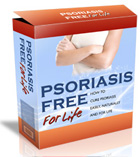Are we Filipinos really genetically pre-disposed to Atopic Dermatitis? Or is our diet and behavior PRO-Atopic Dermatitis? I think genetics is a cop out. If I had continued to live my life like a “normal” Filipino, then I and my children would be eczema riddled. What had to change is that we steered away from the normal Filipino diet and lifestyle:
– stopped eating favorite filipino nightshades: tomatoes, eggplants also potatoes (french fries) and bell peppers
– stopped eating and drinking dairy products: milk, butter, cheese
– stopped eating wheat in all its incarnations: white bread, wheat bread, pandesal, spaghetti, noodles, pizza, pasta, pancit, puto
– stopped eating soy products
– stopped using vegetable cooking oils
– stopped using commercial shampoo
– stopped using commercial deodorant
– stopped using fabric softeners
Why don’t you make a national campaign against all the commercial crap above and see atopic dermatitis levels drop? What? You cannot implement that because of commercial interests? Well, then every Filipino must learn about my website. Bookmark it and email it, spread the word, http://www.eczemacure.info
Filipinos most genetically predisposed to atopic dermatitis, says study
A STUDY revealed that Filipinos are the most at risk when it comes to the development of atopic dermatitis.
Published at The Permanente Journal, the research sought to explore the prevalence of atopic dermatitis by ethnicity within a large, general pediatric practice, as genetics is believed to be a factor in the pathogenesis of this disease.
The study showed that there is a considerable ethnic variation in the prevalence of atopic dermatitis in the general population. Filipino patients appeared to be a much higher risk for development of atopic dermatitis, making up 8.5 percent of affected patients.Second most at risk were other Asians at 5.6 percent incidence, followed by blacks at 3.7 percent. Hispanics had the lowest prevalence of atopic dermatitis at 2 percent.
Atopic dermatitis, one of the most common types of eczema, is a chronic skin problem that is most common in babies and children. Although symptoms may vary from person to person, the most common symptoms are dry, itchy, red skin.
Typical affected skin areas include the folds of the arms, the back of the knees, wrists, face, and hands. Less commonly there may be cracks behind the ears, and various other rashes on any part of the body.
The itchy feeling is an important factor in atopic dermatitis, because scratching and rubbing in response to itching worsen the skin inflammation that is characteristic of this disease. People with atopic dermatitis seem to be more sensitive to itching and feel the need to scratch longer in response. They develop what is referred to as the “itch-scratch” cycle. The extreme itchiness of the skin causes the person to scratch, which in turn worsens the itch, and so on
How atopic dermatitis affects the skin can be changed by patterns of scratching and resulting skin infections. Some people with the disease develop red, scaling skin where the immune system in the skin becomes activated.
Others develop thick and leathery skin, a condition called lichenification, as a result of constant scratching and rubbing. Still others develop papules, or small raised bumps, on their skin. When the papules are scratched, they may open (excoriations) and become crusty and infected.
There are also different factors that can aggravate atopic dermatitis, such as stress, certain foods like eggs, peanuts, milk, wheat, or soy products, allergens, such as dust mites or animal dander, harsh soaps or detergents, weather changes, and skin infections.
People who have atopic dermatitis are particularly prone to skin infections with Staphylococcus aureus. This is in part due to breaks in dry, split skin that results from scratching. Staphylococcal and streptococcal bacteria thrive and invade dry, atopic skin and as a result people with atopic dermatitis frequently suffer from boils, folliculitis and infected eczema. The infection causes the eczema to worsen and become more resistant to the usual treatment with emollients and topical steroids.
Source: http://www.malaya.com.ph/06292010/liv5.html






Speak Your Mind